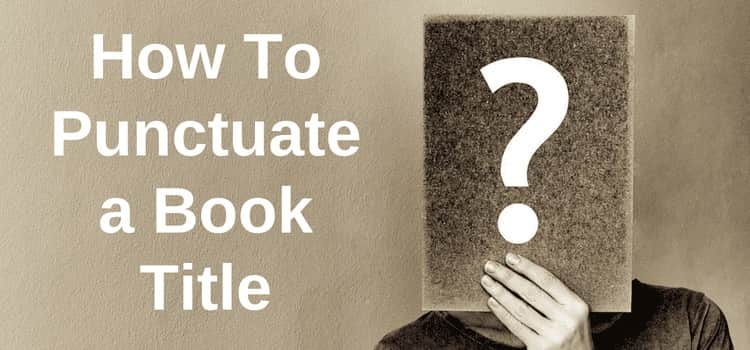
Are there any definitive rules on how to punctuate book titles?
Yes, there are broadly accepted rules for the punctuation of book and chapter titles.
They are very similar to correctly punctuating titles in shorter works such as poems, short stories, songs, and musical albums.
But yes, but when it comes to punctuation for book titles, you can also be creative.
General rules for how to punctuate book titles
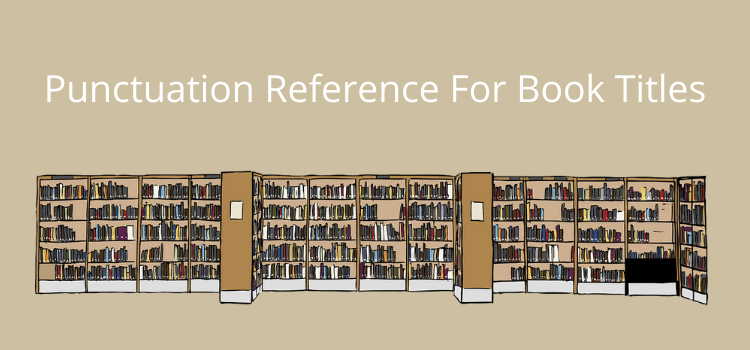
1. Always capitalize the first word and the last word of the title.
2. Always capitalize important and significant words such as proper nouns, verbs, nouns, and adjectives.
3. Always capitalize subordinate conjunctions like, as, or because.
4. Always capitalize a word after a colon.
5. Never capitalize articles, a, an, and the, unless it is the first word of the title.
6. Never capitalize on coordinating conjunctions such as but, and, or, if, or nor.
7. Never capitalize short prepositions of less than five letters like at, to, from, in, out, or over.
8. Always capitalize on a phrasal verb particle such as give out, go away, push on, give in, or get over.
9. No commas and periods (full stops), but hyphens and question marks are commonly used.
Additional punctuation tips
If you are referencing a title, the book title punctuation rules above are fine, and it would be rare that you could go wrong.
It is not recommended to place italics or quotation marks around the titles if they are book titles.
However, if you are referencing parts of a book, such as chapters or only part of the title, use quotation marks.
Tip! Beware of using Title Case in Microsoft Word, as it will capitalize every single word in a title.
There are various references available for the punctuation of book titles. You can refer to the Chicago Manual of Style, the AP Style Guide, the MLA Handbook, The Oxford Style Guide, and many others.
There could be small differences between American, British, Australian, or Canadian English language styles. But the basic rules for punctuating book titles are quite standard across all forms of English.
How to apply the punctuation rules for book titles
Or, can you be creative with your new book title? You can do both, but you first need to remember that your title will be used in two places in your book.
Of course, it will be on your book cover and also on the title page.
For your cover, you can be very creative. But for your book title page, you should use correct capitalization and punctuation.
Very often, every word in the title is a noun, verb, or adjective, so there is not a lot to do or worry about.
However, capitalizing prepositions will cause the most confusion, especially with phrasal verb particles.
If the title is I Wish I Could Move On Quickly, the word, on, is capitalized because move on is a phrasal verb.
But if it is When We Went on Holiday, the word on would not be capitalized because it is a preposition.
Titles on your book cover
Punctuation rules count for very little on a book cover. But great typography counts for a lot.
Yes, you should follow the rules.
But look at the two cover versions below of one of my favorite books, Hitchhikers Guide to the Galaxy.
Obviously, there was a change of punctuating heart about prepositions as the years passed by.
There was also a need for a hyphen because Hitchhikers didn’t fit in full on the original cover.
It is easy to stop worrying about using a capital letter if you use all caps and use a freaky font.
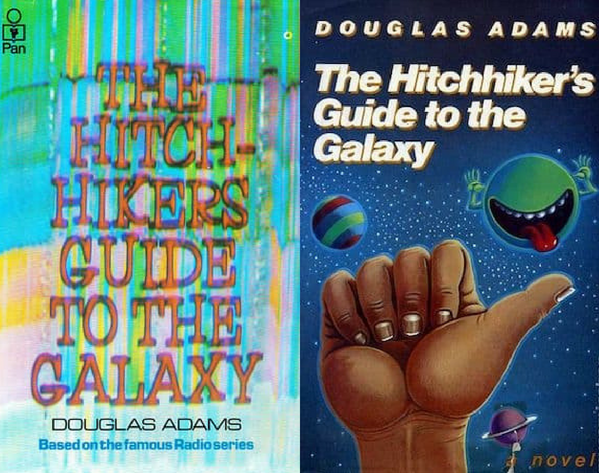
Punctuation rule breakers
When it comes to rule-breaking capitalizing in book titles, you would think that an ex-president would be the last person to be a big rule-breaker.
But Barrack Obama broke the very first golden rule with this cover title.
Mixing lower case with upper case and no capital on the first word is just not in the rule book.
But you would have to say that it works very well.

Another way to throw out the rule book is to not bother with doing anything. Just use lowercase for everything.
But look closely. What’s with adding a hyphen?
Lowercase is one word or can be two separate words depending on your dictionary, so it doesn’t need a hyphen.
But it gets one anyway on this book cover.

But why not add an ampersand in place of and? I’ll let you judge if the ampersand is capitalized or not.

Or, why not add a hyphen when there is absolutely no logical reason whatsoever to add one?
For me, it’s Moby Dick, not Moby-Dick.
Poetic license?

But if you really want to avoid problems and tough decisions, choose a very short one-word title, as Stephen King did with IT.
But should every letter be capitalized?
Probably, but I think in the middle version below, the cover designer was undecided on that score.
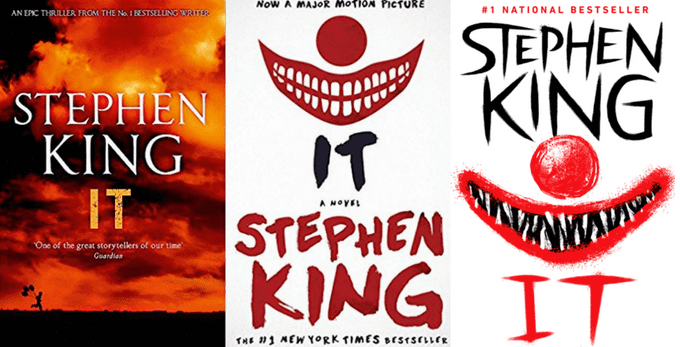
Conclusion
If you are studying and writing an essay or review, always follow the nine basic punctuation rules for titles.
The same applies if you need to add a reference to a bibliography.
But if you are an author researching a new book title, you have a lot of choices.
I would advise sticking to the rules for the title page of your book.
But for your book cover, you or your cover designer can go wild and let your imagination do the talking.
You can italicize the title or only part of it.
Why not use AlTeRnAtInG case? There is no reason why you can’t, except that it is tough to read.
Or you could try having an ǝlʇıʇ uʍopǝpısdn on your cover.
Now, that could create some real interest. It could also require readers to twist their necks to read it.
Accidentally breaking a rule can look silly, as in This Is my New Book title.
But intentionally breaking the rules, as in, THIS is my new book TITLE, might work well for you.
When you are deciding on your new book title, short is usually the best choice.
However, in today’s book marketing world, keywords and SEO play a big role in online book discovery.
But SEO and your title can work happily together if you focus on using only nouns, verbs, and adjectives.
You often hear that if you want to break the rules, you need to learn them first.
It is good advice for book titles and how you intend to punctuate them.
Related reading: When To Capitalize Long Prepositions In Book Titles



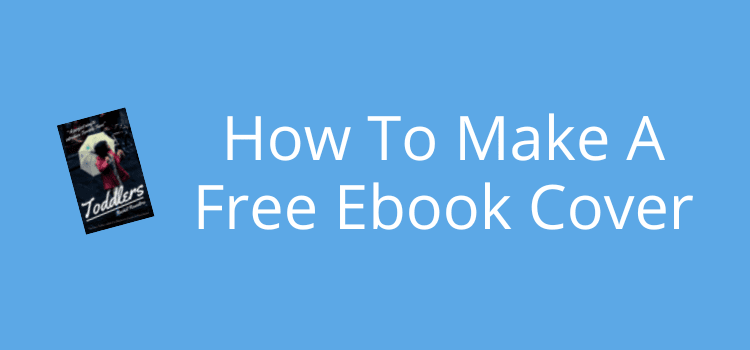
This was so much fun to read. I am struggling with my publisher. I want to add a ellipsis (…) in the title of my book, but they don’t understand that you can and that the title of my book calls for a pause in between the title name. I agree, the title of the book can be creative and brake the rule a bit. I will pass this info over to my publisher. Thanks
Hello,
My notebook has an armadillo on the cover and is titled:
“Little armored one”
Little armored one is “armadillo” in Spanish.
Do I need the quotations on the cover?
Thanks in advance,
Jimmy
Regarding your assertion that commas in titles are forbidden:
Life, the Universe and Everything
Women, Fire, and Dangerous Things: What Categories Reveal About the Mind
The Lion, the Witch and the Wardrobe
Goodbye, Mr. Chips
Are You There, God? It’s Me, Margaret
Alexander and the Terrible, Horrible, No Good, Very Bad Day
Raise High the Roof Beam, Carpenters
Cry, the Beloved Country
Useful, indeed. One cannot successfully break rules until one knows what they are, and most of the time they are there to be stuck to.